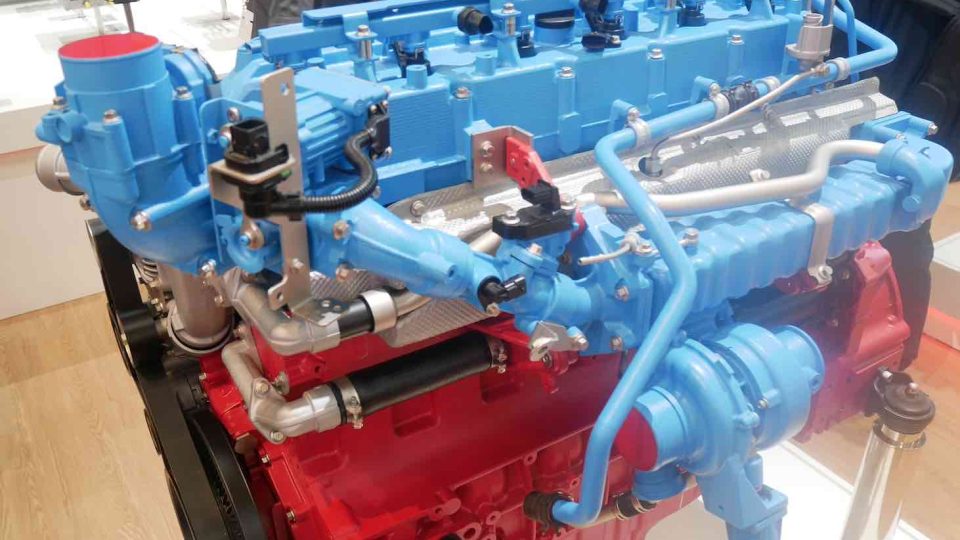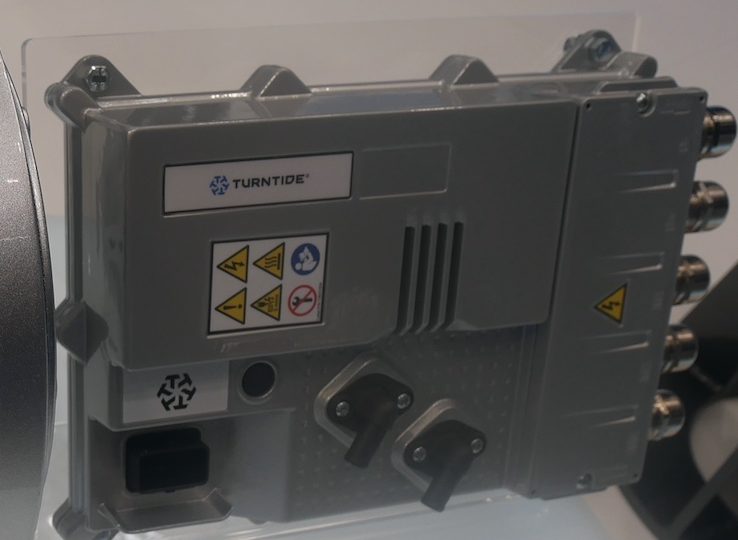JCB: Stage V engines for its mid-range machines
JCB, for its Stage V “adaptation”, started from a combination of “next generation” particulate control technology, using diesel oxidation catalysts (DOC), integrated DPF and selective catalytic reduction (SCR) to meet Stage V regulations. JCB engines are ready for 2020 The new standards came into force on January 1, 2019, for engines below 56kW and above […]
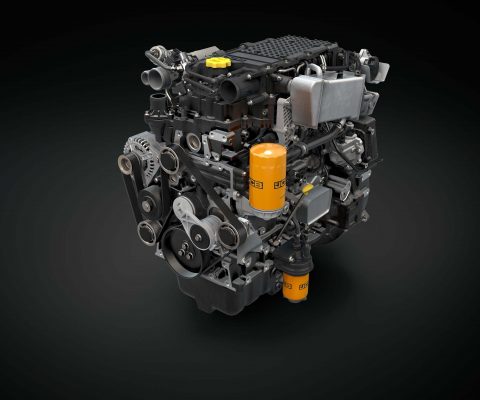
JCB, for its Stage V “adaptation”, started from a combination of “next generation” particulate control technology, using diesel oxidation catalysts (DOC), integrated DPF and selective catalytic reduction (SCR) to meet Stage V regulations.
JCB engines are ready for 2020
The new standards came into force on January 1, 2019, for engines below 56kW and above 130 kW. They will take effect starting January 1, 2020, also for engines in the 56-129 kW range. The standard not only calls for a further reduction in particulate matter, it also broadens the regulations to include a much wider range of engine powers and applications.
Stage V includes other fuel types, such as natural gas, along with static machinery such as generators. JCB Power Systems, in this sense, started with some few advantages: having already in house an efficient combustion technologies within its engine ranges. All Stage V engines started from a design to fit beneath existing engine canopies, so not to require redesign of machinery to accommodate.
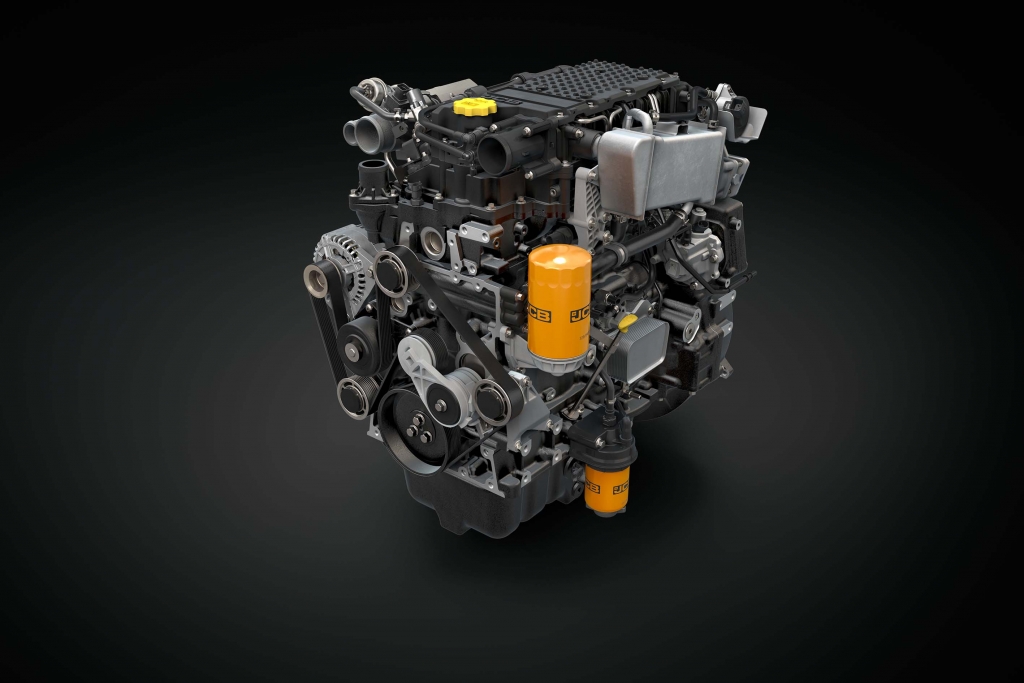
Alan Tolley, Jcb’s Group Director of Engines, said: «Jcb engines have low emission, high efficiency combustion systems developed for Stage IIIB and Tier 4. This means that we started development for Stage V from a good position. JCB’s particulate control technology features low particulate combustion, oxidation catalyst, filter and integrated engine and regeneration control system. It’s been designed to be a completely integrated system that’s highly reliable, highly effective and invisible to the customer. These are compact systems that are installed within our existing machines’ engine bays. In operation, they require no operator intervention or additional service attention».
JCB COMPACT LOADERS FOR AGRICULTURE
The protagonists of JCB’s Stage V
JCB’s 3.0-litre Dieselmax engine will continue to provide an output of 55 kW along with 410 Nm of torque. The engine benefits from the addition of an electronic wastegate turbocharger and a compact DOC and filter system. The 3.0-litre engine also features auto-stop technology and up to 1,000-hour service intervals, reducing operating costs for customers.
«At 55 kW the Jcb Dieselmax engine, equipped with Jcb’s new integrated particulate control technology, operates in many of Jcb’s mid-range machines,» added Tolley.
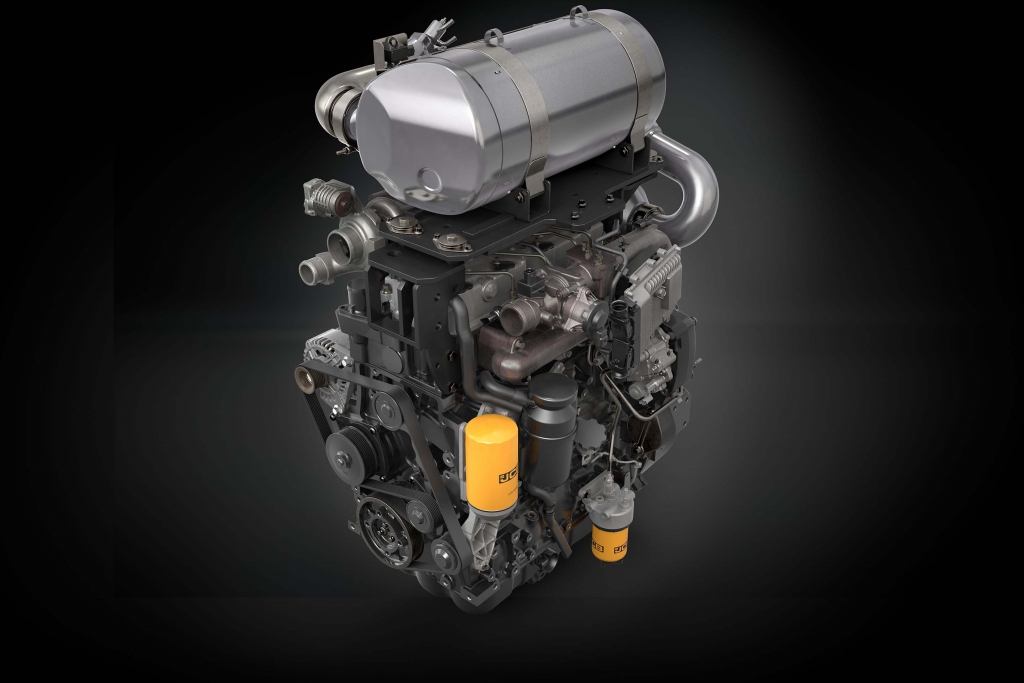
The company’s 4.8-litre EcoMAX engine, with its 81-129 kW and torque outputs of 516 Nm through to 690 Nm, also features a compact after-treatment system, using JCB’s particulate control technology with an SCR filter. This engine also benefits from the adoption of a wastegate turbocharger and auto-stop technology to reduce fuel consumption.




